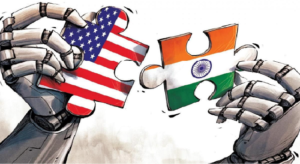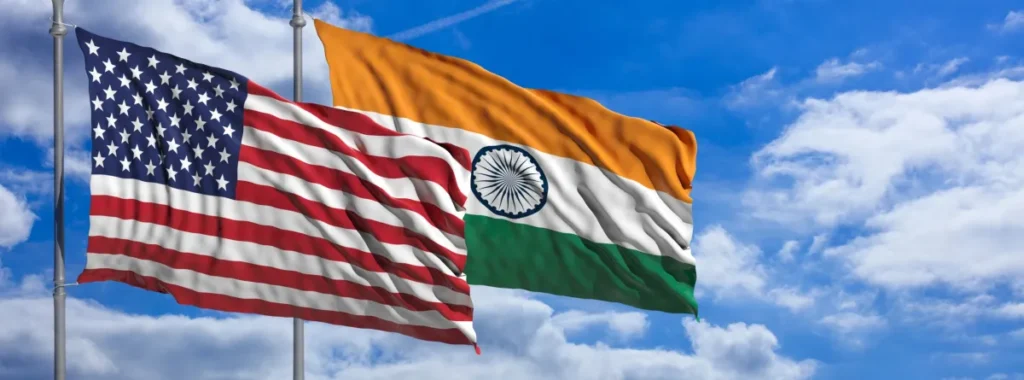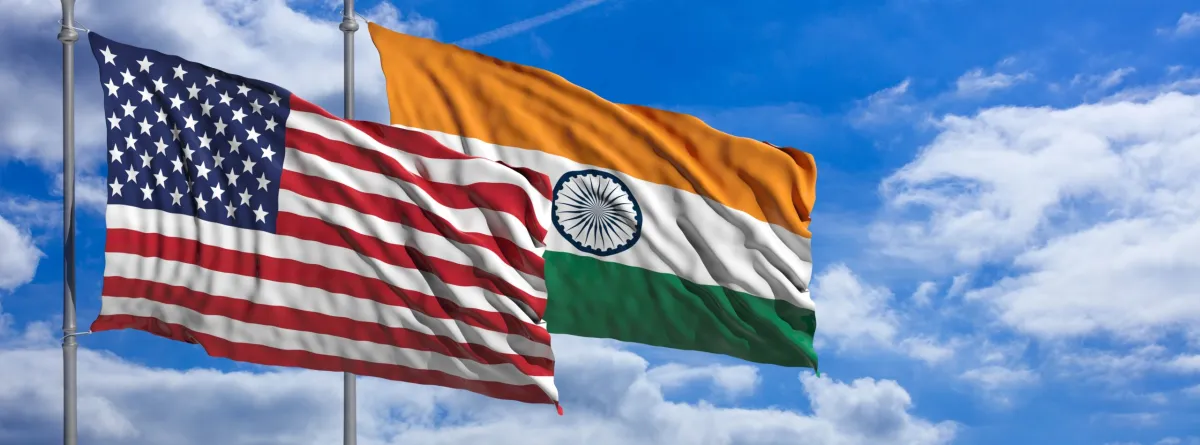The U.S. Presidential election 2024 is poised to have significant implications for global geopolitics, including India-U.S. relations. Donald Trump and Kamala Harris are the main contenders in the 2024 U.S. Presidential election. Joe Biden has decided not to seek re-election. The outcome will influence India’s strategic, economic, and diplomatic engagement with the U.S.”
Donald Trump’s Candidacy and India
Donald Trump, the Republican candidate, has a well-documented history with India, particularly through his personal rapport with Prime Minister Narendra Modi. During Trump’s presidency (2016-2020), India-U.S. relations strengthened considerably, especially in defense cooperation and the Indo-Pacific strategy to counterbalance China’s growing influence. Notable agreements included the Basic Exchange and Cooperation Agreement (BECA), which bolstered India’s military capabilities.
Trump’s presidency focused on improving the U.S.-India partnership through strategic alignment. However, his administration was tough on trade and removed India from the Generalized System of Preferences (GSP). They shared concerns over China, terrorism, and military ties. defined the relationship. High-profile events like Howdy Modi in Houston and Namaste Trump in Ahmedabad showcased a warm personal relationship between Trump and Modi, which could be a factor if Trump wins the U.S. Presidential Election 2024 election.
From India’s perspective, another Trump term could mean a continuation of strong defense ties and strategic alignment. However, India may need to navigate ongoing trade tensions and pressure for market reforms if Trump returns to power.
Kamala Harris’ Candidacy and India
On the other hand, Kamala Harris, the Democratic Party’s nominee, represents a more traditional diplomatic approach. As the current Vice President under Joe Biden, Harris would likely continue many of the policies seen in the Biden administration, focusing on multilateralism, democratic values, and global cooperation. While Biden’s administration maintained the U.S.-India strategic partnership, it also voiced concerns about human rights and democratic freedoms in India, particularly related to issues like Kashmir and religious freedom.
Harris, with her Indian heritage, could enhance diplomatic ties by focusing on areas like technology, climate change, and healthcare collaboration. Her administration may scrutinize India’s domestic policies, potentially causing friction over press freedom and minority rights. Still, the strategic importance of India, particularly in the Indo-Pacific region, means that cooperation in defense, counterterrorism, and trade will likely continue under Harris if she wins U.S. Presidential Election 2024.
Modi’s Preference: Trump or Harris?
Prime Minister Modi has historically maintained good relationships with U.S. leaders from both parties, but his relationship with Trump was notably strong and public. Trump’s transactional and pragmatic approach to foreign policy resonated with Modi, especially in areas of defense cooperation and countering China. For Modi, another Trump term could mean fewer challenges regarding India’s internal policies and more strategic collaboration in the defense sector.
However, Modi has also adapted well to the Biden administration’s policies, and Harris’ potential presidency would not derail the India-U.S. partnership. While Harris may push for more attention on human rights, Modi would likely continue to engage on strategic issues like trade, climate change, and the Indo-Pacific, ensuring the partnership remains strong.

Conclusion
Regardless of who wins the 2024 U.S. presidential election, the India-U.S. relationship is expected to remain vital due to shared strategic interests.
A Trump victory might lead to enhanced defense and military cooperation, while a Harris presidency could focus more on diplomatic relations, democratic values, and economic cooperation.
India’s interests will be shaped by its ability to maintain a balanced, pragmatic relationship with whichever leader comes to power, ensuring that both nations continue to benefit from their deepening ties.











